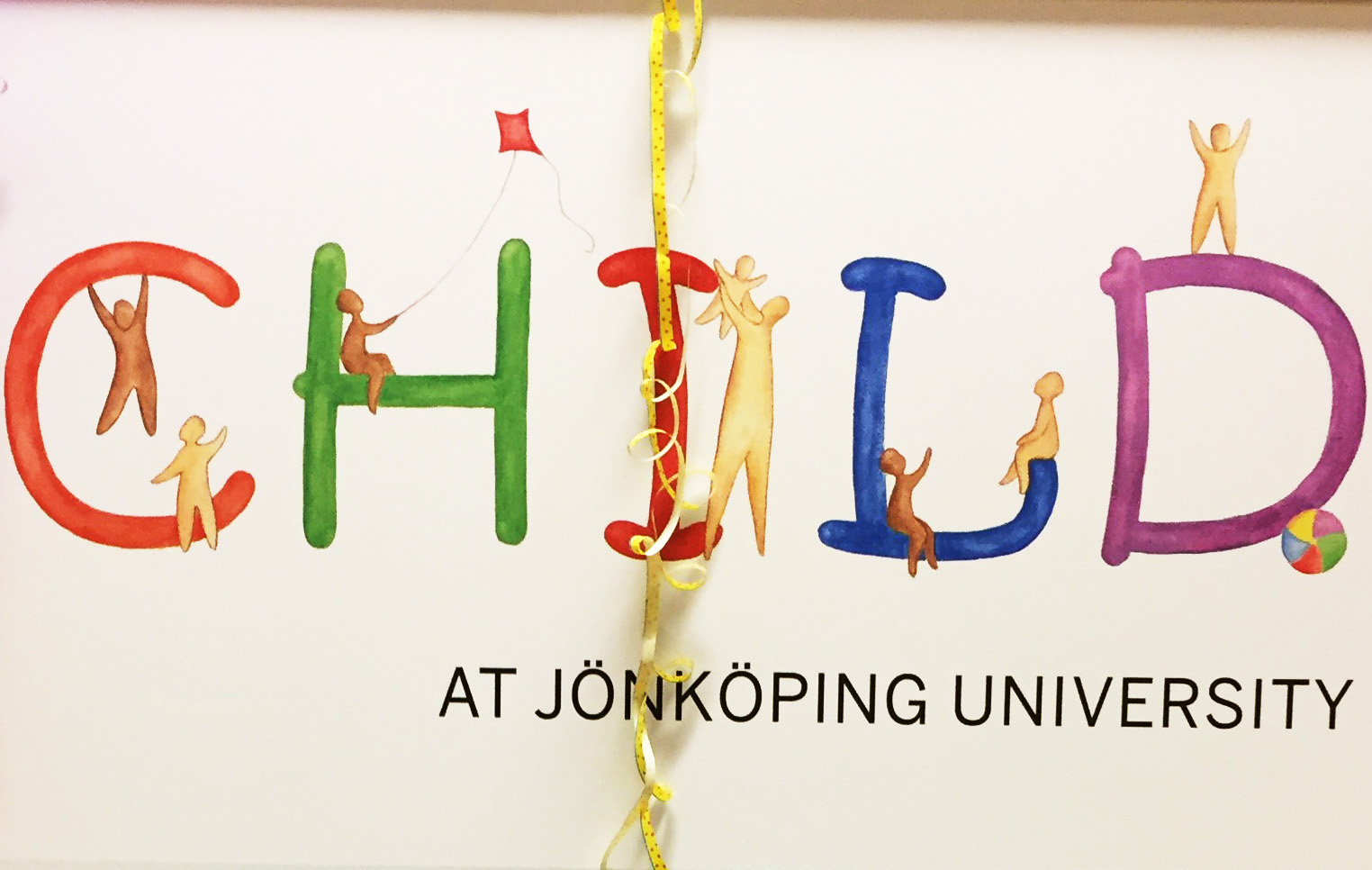10-year anniversary for research on children in need of special support
On 10 November, the research environment CHILD celebrated 10 years at Jönköping University. This was marked with a research conference on research trends and a festive evening. But how did it all start and where are they headed next?

In 2006, Professor Mats Granlund and Professor Eva Björck-Åkesson moved from Mälardalen University to Jönköping University. They brought with them a research team that conducted research on children in need of special support. In Jönköping, there was already a research team around Professor Karin Enskär, conducting research about daily functioning for children with long-term illness and how to support children to deal with painful medical procedures. Soon, the groups found common ground and CHILD was formed.
“The goal was to build a more multidisciplinary environment where the two groups could progress together. We also wanted to become the leading research center in our field nationally, and internationally known. We also wanted to train new researchers”, says research director Mats Granlund. “By doing so, we could indirectly help even more children.”
After ten years, the CHILD researchers know a lot about the situation for children in need of special support. In the near future, they want to learn more about how children's functioning vary over time, from the young children’s life in family and pre-school, to the lives of young people in school, with friends, and on their way to live on their own.
“We do more and more studies where we follow the children for a few years. We want to apply what we know to make the situation better for the children, and because of that we focus more on studies in which we evaluate the activities. Our research has had an impact in daily life through cooperation with municipalities, county councils and authorities. We have increased the number of articles we publish each year in scientific journals, we are cited more often by other researchers and we have increased our cooperation with scientists from other countries”, explains Mats Granlund.
CHILD was recently evaluated by a group of external professors and got a very positive evaluation.
“We are seen as leading in our field in Sweden and are assessed to also do well internationally. In a comparison of all the researchers in our field in the Nordic region, our group has three of the researchers who belong to the top 10% of the researchers, and four researchers who belong to the top 25%. We also get an average of 5-6 million SEK each year in external research funding, which is good, although the figure needs to be higher”, says Mats Granlund.
CHILD includes 35-40 researchers from the School of Health and Welfare and the School of Education and Communication at Jönköping University. In recent years, the number of associate professors and professors in the group has increased slightly, while new researchers are continuously trained. An impending generational shift means that the younger researchers are supported in gaining experience to lead a research group. But there is also a need to recruit experienced researchers. The high expertise that exists within CHILD bodes well for the future.
“The future is looking bright, and the group will continue to develop. Obviously, the focus of the research will change slightly depending on the researchers involved and their interests, but we will continue to have the everyday functioning of children and adolescents in need of special support as our area of interest.”
By Cecilia Allegrind
